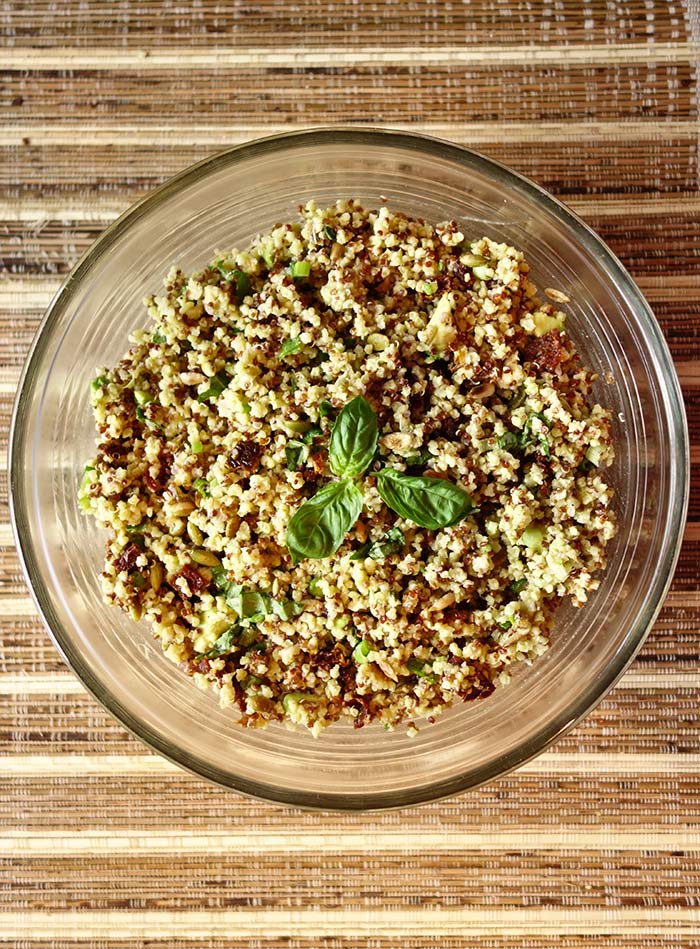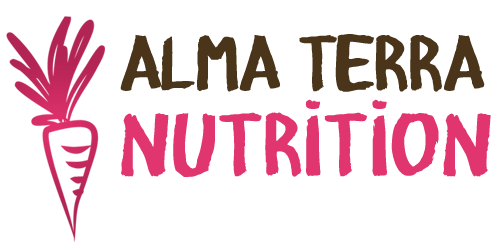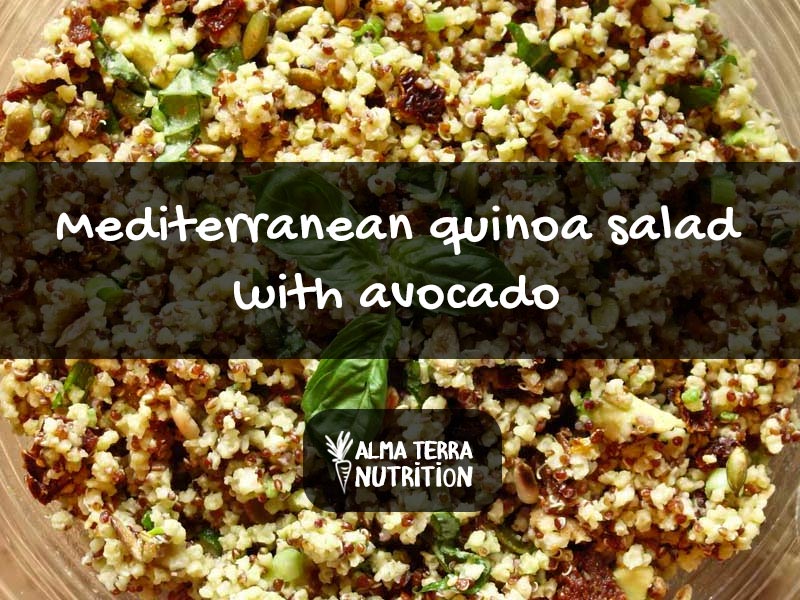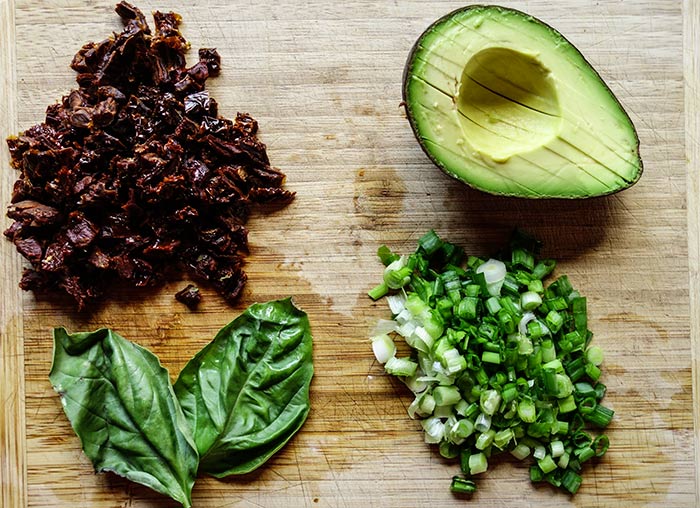You’ll relish this quinoa salad! Featuring Mediterranean flavors, this dish is delicious and simple to make.
Preparation: 20 minutes
Cooking time: 20 minutes
Servings: 4
Ingredients
- 1/2 cup each white and red quinoa
- 2 avocados
- 1 Tablespoon sesame seeds or 2 Tablespoons shelled pumpkin or sunflower seeds
- 10 dried tomatoes
- 10 green olives
- 1 stem green onion
- Few fresh basil leaves
Seasoning:
- 100 ml olive oil
- 2 organic lemons, juiced
- 2 Tablespoons tahini
- 1 clove garlic, minced
- pinch each of salt and cayenne pepper
Instructions
- Rinse quinoa in cold water, and drain well.
- In a saucepan, bring 450 ml water to boiling on the stove. Add quinoa. Cover the pot, and reduce the flame.
- Cook until quinoa absorbs the water and fully expands, about 20 minutes. Remove pot lid, and allow quinoa to cool.
- Put the seeds in an oil-free pan, and cook on medium-low heat, stirring frequently. Once the seeds begin browning, immediately remove them from the heat. Be careful not to burn them.
- Cut into small pieces the avocados, tomatoes, olives, and green onion.
- In a bowl, mix the vegetables and toasted seeds with the cooled quinoa. Then, add the seasoning. Serve chilled, garnished with fresh basil!

Important notes on quinoa and avocado
Quinoa
Cooked quinoa has a fluffy, pearly appearance, with a crunchy texture and nutty taste. Although often listed among healthy grains, quinoa is a seed.
Red and purple varieties are packed with antioxidants. Other starring qualities of quinoa are being gluten-free, high in fiber, and a complete protein, containing all nine essential amino acids.
Additionally, quinoa is a good source of B vitamins, Vitamin E, calcium, iron, magnesium, potassium, and phosphorus.
Quinoa has become so popular that production is jeopardizing the sustainability of the Bolivian Altiplano’s agricultural system. While Bolivia has dominated the market for a long time, Peru is gaining competitive ground. However, Peru practices heavy pesticide use. Therefore, please support the organic production of quinoa from Bolivia, where the crop is hand-cultivated.
Avocados
Though commonly regarded as a vegetable, botanically speaking, avocado is a fruit.
Loaded with the antioxidants lutein, alpha-carotene, beta-carotene, zeaxanthin, and Vitamin E, avocado protects against eye disease. Oleic acid slashes cholesterol and promotes satiety, helping you feel full. The monounsaturated fat in avocado slows digestion and stabilizes blood sugar.
Pregnant mothers especially benefit from folate, reducing the risk of birth defects. Folate also lowers heart disease risk.
However, avocado production has a dark side. On average, it requires twice the water of most other cultivated trees. Also, if possible, buy it organic.




